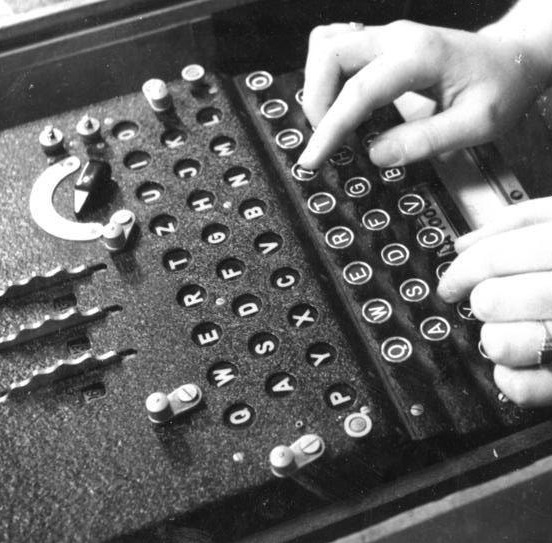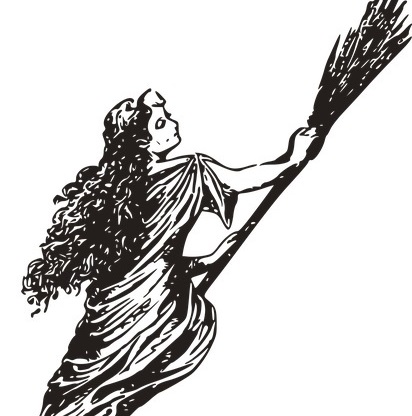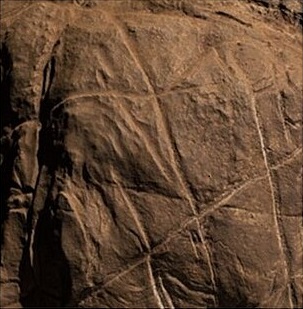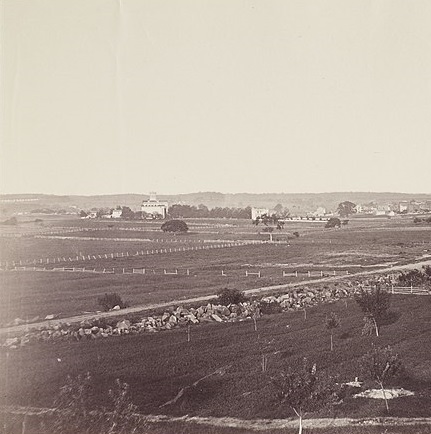
by Richard Subber | Mar 21, 2024 | American history, Book reviews, Books, History, World history
lots of personal drama
Book review:
Battle of Wits:
The Complete Story of Codebreaking
in World War II
by Stephen Budiansky (b.1957)
New York: The Free Press, 2000
436 pages with index, detailed notes
It is somewhat disappointing to me that Budianky’s well-researched work is focused on American and British codebreaking work during WWII, with relatively little said about the opposing code work of the Axis powers.
Nevertheless, Battle of Wits is a personalized and engaging account of the people involved in codebreaking that began, with baby steps, in the years following WWI.
It’s a lot to read, the personalities are dramatically presented, and there is a fair amount of technical stuff, so the book can satisfy both casual readers and the techies.
If you think you know a lot about Enigma and the Japanese code work and all of the half-truths about codebreaking in the second great war, read this book and learn some more.
* * * * * *
Book review. Copyright © Richard Carl Subber 2024 All rights reserved.
Book review:
The American Revolution: A History
The “Founders” were afraid
of “democracy”…
by Gordon S. Wood
My first name was rain: A dreamery of poems with 53 free verse and haiku poems,
and the rest of my poetry books are for sale on Amazon (paperback and Kindle)
and free in Kindle Unlimited, search Amazon for “Richard Carl Subber”
* * * * * *

by Richard Subber | Mar 17, 2024 | American history, Book reviews, Books, History, Human Nature
very destructive bogus stuff going on…
Book review:
The Witches:
Suspicion, Betrayal, and Hysteria in 1692 Salem
by Stacy Schiff (b.1961)
Little, Brown and Company, New York, 2015
498 pages
It may be that Stacy Schiff has neglected to include some fact or sentiment about the Salem witch trials, but I can’t imagine what it might be. The Witches is an expansive compendium of the whos and whats and whys and wherefores of this compelling—yet essentially impenetrable—story about a community gone crazy.
Maybe you had to be there to understand it.
It’s too easy to suggest the McCarthy Communism hunting in 1954 as a modern analogy, but it won’t work. The whole dreadful McCarthy thing was a political football, approaching a sideshow even though it attracted the nominal attention of the nation and destroyed many lives.
The Salem witch trials (and the witch hunting that went on in neighboring towns) consumed the waking hours of all the townsfolk, who were deeply convinced that witches exist and that they are in league with satanic forces.
For my taste, Schiff tells too much of the story. I would have been content with a less detailed account. There is repetition that is dispensable.
For my taste, she struck a good balance between telling the story as it happened, and inviting the reader to suspect that the teenage girls were fooling all along, and that too many accusers had a personal reason to “get” the accused, and that too many religious and civic leaders struggled unsuccessfully with their religious faith and the opposing impulses of their arguably decent selves who quickly figured out that the witch craze was a very nasty game.
You don’t need to read the whole book to figure out that there was some very destructive bogus stuff going on in the Massachusetts Bay Colony in 1692.
Maybe you don’t need to read the whole book to be convinced that some folks aren’t continuously motivated by a decent streak of good will and a desire to support communal well-being.
* * * * * *
Book review. Copyright © Richard Carl Subber 2024 All rights reserved.
Book review: An Empire on the Edge
by Nick Bunker
The British wanted to win
the Revolutionary War,
but they had good reasons
for not trying too hard…
My first name was rain: A dreamery of poems with 53 free verse and haiku poems,
and the rest of my poetry books are for sale on Amazon (paperback and Kindle)
and free in Kindle Unlimited, search Amazon for “Richard Carl Subber”
* * * * * *

by Richard Subber | Feb 6, 2024 | Book reviews, Books, History, Human Nature, World history
the byways of evolution…
Book review:
Cave of Bones
by Lee Berger and John Hawks
Washington, D.C.: National Geographic, 2023
235 pages
We haven’t been alone since forever, more or less.
It’s way too easy to adopt the common misunderstanding that humans are soooo exceptional, uniquely better than all the other animals.
The emphasis is on “unique,” at the apex of a singular progression throughout all of our history.
It ain’t necessarily so.
Cave of Bones is full of countervailing evidence: Homo naledi in south Africa were building fires, burying their dead, and scratching lines on cave walls at about the same time—200,000 to 300,000 years ago—as early members of Homo sapiens were doing the same things.
Paleoanthropologist Lee Berger affirms that Homo naledi didn’t look like us, and were a separate species and “by almost any definition…not human.” Nevertheless, in the Rising Star cave system he and his team members found charcoal and armfuls of fossil bones and scratch marks and a rock shaped like a tool, all confirming that naledi left evidence of their human-like activities, and, yes, culture.
In his introduction, Berger confides a sobering reality: “We explore the places where things have died.” I’m glad I didn’t do that in my career work.
Read Cave of Bones cover to cover. Learn some interesting stuff.
* * * * * *
Book review. Copyright © Richard Carl Subber 2024 All rights reserved.
Book review: Lafayette by Harlow Unger
He was a great man. Also rich and lucky.
Writing Rainbows: Poems for Grown-Ups with 59 free verse and haiku poems,
and the rest of my poetry books are for sale on Amazon (paperback and Kindle)
and free in Kindle Unlimited, search Amazon for “Richard Carl Subber”
* * * * * *

by Richard Subber | Jan 21, 2024 | American history, Book reviews, Books, Democracy, History, Politics, Power and inequality
Popular history: not exactly true…
Book review:
Origins of Modern America, 1860-1900
Allen Weinstein, ed.
Vol. 4 of Random House Readings in American History
New York: Random House, 1970
216 pages
Contains 10 essay-length segments addressing three themes: Civil War and Its
Aftermath, The New Society, and The Approach of Empire
The four decades that started with the American Civil War were a continuing tempest of change in every aspect of American life.
Origins of Modern America, 1860-1900 is a compact collection of 10 essays that will open your eyes to the significant currents and eddies in the great waves of transformation that marked the end of America’s first complete century. A lot of it wasn’t pretty.
Authors like Alfred D. Chandler Jr. and Stephan Thernstrom take a deep look at many iconic elements in the periods of American history that traditionally have been labeled as the Civil War, Reconstruction, and the Gilded Age. These essays were written in the middle of the 20th century, and these historians offer careful looks at many widely-held truisms that are not, in fact, wholly or even substantially true.
For example, Thernstrom examines “Urbanization, Migration, and Social Mobility in Late Nineteenth-Century America.” He gives evidence of several nuances and some inaccuracies in the concept of the development of a beleaguered, largely immigrant working class as industrialization burgeoned in the United States.
A large component of the working class were young American boys and girls who moved east to get off their parents’ failing farms. The political empowerment of the working class was muted and delayed in America (in contrast to the more volatile emergence of socialist activism in Europe) because so many of the blue collar workers were persistently transient—they didn’t stay in one job or place long enough to develop coherent political consciousness and clout.
Thernstrom starkly notes that “Lowell [a factory town] was terrible,” but for many European immigrants and Kansas farm boys the factory job and the tenement life were an improvement in their prospects for a tolerable life.
Organizing for worker’s rights was a tough proposition, and the wealthy factory owners and industry barons used their dominant power to resist it:
“In 1875, the Superintendent of one of Andrew Carnegie’s steel mills summed up his experience this way: ‘We must steer clear as far as we can of Englishmen, who are great sticklers for high wages, small production and strikes. My experience has shown that Germans and Irish, Swedes and what I denominate “Buckwheats”—young American country boys, judiciously mixed, make the most honest and tractable force you can find.’ ” (p. 149)
Indeed, there are many varieties of the American dream, all depending on your point of view.
Origins of Modern America offers good learning in compact, complementary, and compelling essays.
It will almost certainly change your mind about some key elements of American history
that you’ve always known to be true…
* * * * * *
Book review. Copyright © Richard Carl Subber 2024 All rights reserved.
Home Team: Poems About Baseball (book review)
Edwin Romond hits another homer…
–
Above all: Poems of dawn and more with 73 free verse poems,
and the rest of my poetry books are for sale on Amazon (paperback and Kindle)
and free in Kindle Unlimited, search Amazon for “Richard Carl Subber”
* * * * * *

by Richard Subber | Dec 24, 2023 | American history, Book reviews, Books, History
strange men are shooting…
Book review:
The Diary of a Lady of Gettysburg, Pennsylvania
From June 15 to July 15, 1863
by Pennsylvania Lady of Gettysburg
Ithaca, NY: The Cornell University Library Digital Collections, 2023
29 pages
There is not much fireworks in The Diary of a Lady of Gettysburg, Pennsylvania.
Rather, this largely muted account of a civilian lady in Gettysburg during the famous battle is a compelling tribute to the civilians and combatants who unhappily endured the terrible fighting and killing that could have effectively ended the American Civil War, but didn’t.
A devastating insight into the civilians’ stress and suffering is this: during most of the battle, they really didn’t know very much about what was going on. The civilians who stayed in the town (most of them) repeatedly hunkered down in their cellars and waited until the artillery bombardments ceased. The civilians repeatedly talked with both Union and Confederate soldiers who were in or moving through the town. The civilians, in the main, tried to care for the wounded men of both sides who happened to be nearby.
The battle of Gettysburg was terrifying for the civilian residents of the town, and, luckily for them, it didn’t last too long.
Try to imagine hiding in your house for four or five days, desperately wondering what’s going on, while strange men are walking and running through the streets, shooting at everything, and cannon balls are hitting buildings every so often.
* * * * * *
Book review. Copyright © Richard Carl Subber 2023 All rights reserved.
Book review: The Sea Runners
…it informs, it does not soar…
by Ivan Doig
In other words: Poems for your eyes and ears with 64 free verse and haiku poems,
and the rest of my poetry books are for sale on Amazon (paperback and Kindle)
and free in Kindle Unlimited, search Amazon for “Richard Carl Subber”
* * * * * *

by Richard Subber | Nov 28, 2023 | American history, Book reviews, Books, History, World history
women did most of the work…
Book review:
Code Girls:
The Untold Story
of the American Women Code Breakers
of World War II
by Liza Mundy
New York: Hachette Books, 2017
416 pages
It’s a fascinating and inspiring story about World War II.
Incredibly talented code breakers—most of them women—significantly helped to win the war by breaking German, Japanese, Italian, and many other wartime codes, and supplying urgently timely information to Allied forces, and significantly helping to save Allied lives.
No one knows how many Allied fighting men and women, and civilians, survived the war because of the “code girls.”
Code Girls has enough about the esoterica of code breaking to satisfy the most knowledgeable fan, but not so much that it will stupefy a typical reader of history.
For my taste, Mundy tells a bit too much of the untold story. After I got into the book, I started to feel like I didn’t need to know any more about bunches of “code girls” sharing a bathroom in a crowded wartime boarding house in Washington, D.C.
p.s. I’m searching for a book about the code breakers on the other side.
* * * * * *
Book review. Copyright © Richard Carl Subber 2023 All rights reserved.
Does the public want public interest news?
Is it news to you?
In other words: Poems for your eyes and ears with 64 free verse and haiku poems,
and the rest of my poetry books are for sale on Amazon (paperback and Kindle)
and free in Kindle Unlimited, search Amazon for “Richard Carl Subber”
* * * * * *




